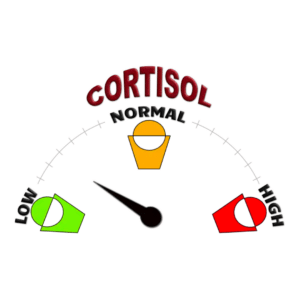Nutrigenomics is the study of how nutrients in the diet interact with an individual’s genetic make-up to affect their health (1). It combines knowledge from nutrition and genetics to understand how different nutrients and food components can affect gene expression, which can influence the development of chronic diseases such as obesity, diabetes, and cancer. The goal of nutrigenomics is to develop personalised nutrition plans tailored to an individual’s genetic make-up to optimise their health and reduce their risk of chronic diseases (1).
Some examples of nutrigenomics research include:
detoxification:
Detoxification is the body’s process of removing toxins and harmful substances accumulated in the body. The liver, kidneys, and other organs and systems in the body are responsible for detoxification. Nutrients from the diet, such as antioxidants and phytochemicals, play an essential role in supporting these processes.
Nutrigenomics can be applied to detoxification by identifying genetic variants that affect an individual’s ability to detoxify harmful substances. For example, genetic variations in the enzymes responsible for detoxifying specific toxins, such as alcohol and pollutants, may affect an individual’s ability to metabolise those toxins (2). This can significantly impact an individual’s risk of developing chronic diseases such as liver disease and cancer (2).
Additionally, nutrigenomics may provide insight into how specific nutrients and phytochemicals can affect the expression of genes that regulate detoxification pathways. For example, research has shown that certain phytochemicals found in cruciferous vegetables, such as sulforaphane (kale, Bok choy, cabbage, broccoli, Brussel sprouts), can activate a group of genes known as the “detox genes”, which help to protect the body against cancer-causing toxins (2).
diet and exercise:
Nutrigenomics can be applied to diet and exercise by identifying genetic variations that affect an individual’s response to different diets and exercise regimes (3). For example, genetic variations that affect an individual’s ability to metabolise carbohydrates or fat can influence their response to a low-carb or high-fat diet. Similarly, genetic variations that affect muscle function and recovery can influence an individual’s response to different types of exercise (3).
By identifying these genetic variations, nutrigenomics can help develop personalised diet and exercise plans tailored to an individual’s genetic make-up to optimise their health and fitness outcomes. For example, suppose an individual has a genetic variation that affects their ability to metabolise carbohydrates. In that case, a low-carb diet may be more beneficial for them compared to a high-carb diet. Similarly, if an individual has a genetic variation affecting muscle recovery, a different exercise programme may be more appropriate for them (3).
It is important to note that while genetics plays a role in a person’s response to diet and exercise, it is not the only factor; lifestyle, environment, and other health conditions also play a role. Therefore, nutrigenomic recommendations should be considered along with additional information about the individual.
nervous system:
The nervous system, including the brain and spinal cord, controls the body’s functions and environmental responses. Nutrients from the diet play an important role in supporting the health and function of the nervous system. Nutrigenomics can be applied to the field of the nervous system by identifying genetic variants that affect an individual’s response to specific nutrients and their ability to maintain the health of the nervous system (4).
For example, genetic variations in enzymes responsible for the metabolism of certain B vitamins, such as folate and vitamin B12, can affect an individual’s ability to produce neurotransmitters, chemicals that transmit signals in the brain and nervous system. This can impact an individual’s risk of developing neurological disorders such as depression, anxiety and cognitive decline (4).
Additionally, nutrigenomics can provide insight into how certain nutrients can affect the expression of genes that regulate the development and function of the nervous system. For example, research has shown that omega-3 fatty acids, which are found in fatty fish and fish oil supplements, can play a role in the development of the nervous system and may also have neuroprotective effects (4).
To support the health of the nervous system, it is vital to consume a balanced diet that is rich in fruits and vegetables, whole grains, and lean protein, as well as sufficient amounts of certain nutrients such as B vitamins, omega-3 fatty acids, antioxidants, and minerals like zinc, iron and magnesium. Additionally, avoiding exposure to toxins and maintaining a healthy lifestyle, such as regular exercise and adequate sleep, can help the nervous system’s health (4).
In summary, nutrigenomics can provide insight into how genetic variations can affect an individual’s response to certain nutrients and how certain nutrients can affect the expression of genes that regulate the development and function of different bodily systems. Thus, it can inform the recommendations of personalised nutritional approaches.
sources:
- Simopoulos, A.P. (2010). Nutrigenetics/Nutrigenomics. Annual Review of Public Health, 31(1), pp.53–68. doi:10.1146/annurev.publhealth.031809.130844.
- Aronica, L., Ordovas, J.M., Volkov, A., Lamb, J.J., Stone, P.M., Minich, D., Leary, M., Class, M., Metti, D., Larson, I.A., Contractor, N., Eck, B. and Bland, J.S. (2022). Genetic Biomarkers of Metabolic Detoxification for Personalized Lifestyle Medicine. Nutrients, 14(4), p.768. doi:10.3390/nu14040768.
- Shyam, S., Lee, K.X., Tan, A.S.W., Khoo, T.A., Harikrishnan, S., Lalani, S.A. and Ramadas, A. (2022). Effect of Personalized Nutrition on Dietary, Physical Activity, and Health Outcomes: A Systematic Review of Randomized Trials. Nutrients, 14(19), p.4104. doi:10.3390/nu14194104.
- Zeisel, S.H. (2012). Diet-Gene Interactions Underlie Metabolic Individuality and Influence Brain Development: Implications for Clinical Practice Derived from Studies on Choline Metabolism. Annals of Nutrition and Metabolism, 60(s3), pp.19–25. doi:10.1159/000337310.








